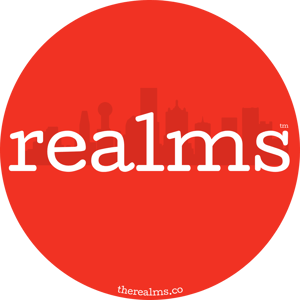Very early in my career, I was a staff accountant for a large property management company that is...
From Chaos to Control: Why Property Managers Need Purchase Orders
In property management, where efficiency and cost control are critical, implementing a purchase order (PO) system can transform how expenses and vendor relationships are managed. While often overlooked, especially by smaller operations, POs provide a structured approach to expense oversight, vendor communication, and financial tracking. Here’s how incorporating POs into your property management processes can drive significant benefits.
- Enhanced Expense Control
One of the most significant benefits of using POs is improved expense management. In property management, operational expenses such as maintenance, utilities, and capital improvements can quickly spiral out of control without proper oversight. A PO system ensures that expenditures are approved before they are incurred.
-
- Budget Adherence: By requiring pre-approval for purchases, property managers can ensure that spending aligns with property budgets.
- Prevention of Over-Spending: Unauthorized or excessive purchases are minimized, protecting the company from unnecessary costs.
- Improved Vendor Relationships
Property managers often rely on a network of vendors for services such as landscaping, plumbing, and HVAC maintenance. A formal PO system enhances these relationships by ensuring transparency and clarity.
-
- Clear Communication: POs outline the exact goods or services requested, their quantities, and agreed-upon prices, reducing the potential for disputes.
- Timely Payments: With a documented record, accounts payable teams can process vendor invoices more efficiently, leading to quicker payment cycles and stronger partnerships.
- Streamlined Operations
In a fast-paced property management environment, maintaining operational efficiency is critical. POs help streamline processes across multiple teams.
-
- Centralized Tracking: With POs in place, tracking orders from initiation to completion becomes more straightforward, reducing confusion and duplication of effort.
- Audit Readiness: A clear, documented trail of approved expenditures simplifies financial audits, which are often a critical part of property management operations.
- Enhanced Fraud Prevention
Fraud can pose a significant risk, especially in operations with decentralized purchasing processes. POs add an extra layer of control that helps mitigate this risk.
-
- Segregation of Duties: Requiring POs ensures that no single individual has unchecked control over purchasing and payment, reducing the likelihood of fraudulent activities.
- Verification: Invoices are matched against POs and receipts before payment, ensuring that services or goods billed were actually delivered.
- Data-Driven Decision Making
For companies managing multiple properties, access to detailed purchasing data is invaluable for strategic decision-making.
-
- Spending Analysis: A PO system captures granular data about purchasing trends, which can be analyzed to identify cost-saving opportunities or negotiate better vendor terms.
- Forecasting: Historical PO data supports more accurate financial forecasting, allowing property managers to anticipate future expenses with greater precision.
- Scalability for Growing Portfolios
As a property management company grows, so does the complexity of managing expenses across properties. A robust PO system is essential for scalability.
-
- Standardization Across Properties: POs establish a consistent purchasing process across all properties in a portfolio, making it easier to manage and oversee operations.
- Adaptability: Whether managing a handful of properties or a vast portfolio of Class A+ multifamily assets, a PO system can adapt to meet your needs.
How to Get Started with Purchase Orders
Implementing a PO system doesn’t have to be overwhelming. Start by:
- Choosing the Right Tool: Many property management platforms, such as Yardi, offer integrated PO modules that seamlessly connect with accounts payable and general ledger systems.
- Defining Approval Workflows: Establish clear approval hierarchies to ensure proper oversight without creating bottlenecks.
- Training Your Team: Educate your staff on the importance of POs and how to use them effectively.
- Regularly Reviewing Policies: Periodic audits of your PO process ensure it remains efficient and aligned with your goals.
Conclusion
In the property management industry, where precision and accountability are non-negotiable, purchase orders are more than just paperwork—they are a strategic tool. By implementing a PO system, property managers can gain tighter control over expenses, foster better vendor relationships, streamline operations, and position themselves for scalable growth. Whether you're managing a single property or a vast portfolio, the benefits of purchase orders make them an essential component of modern property management.
Need help?
Would you like to learn more about how to implement purchase orders in your property management system? At Realms, we specialize in optimizing financial processes for real estate. Let us help you take control of your purchasing and expenses today.



